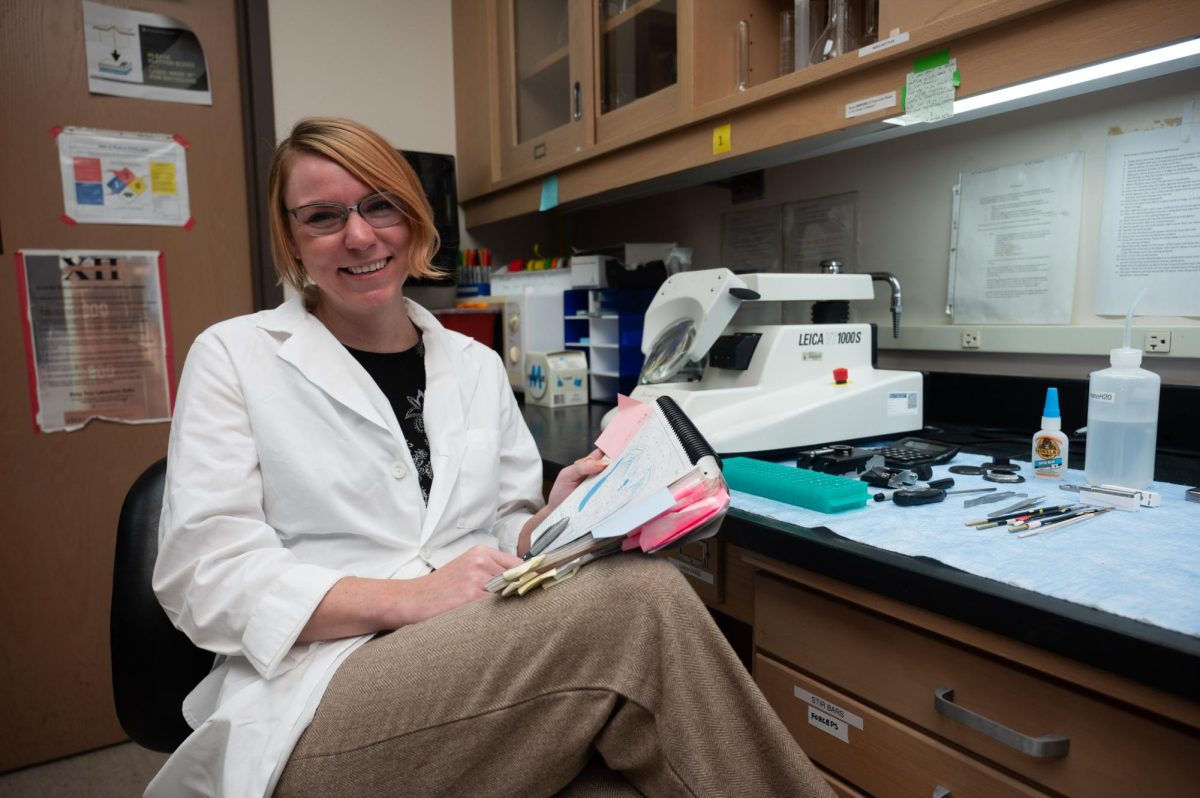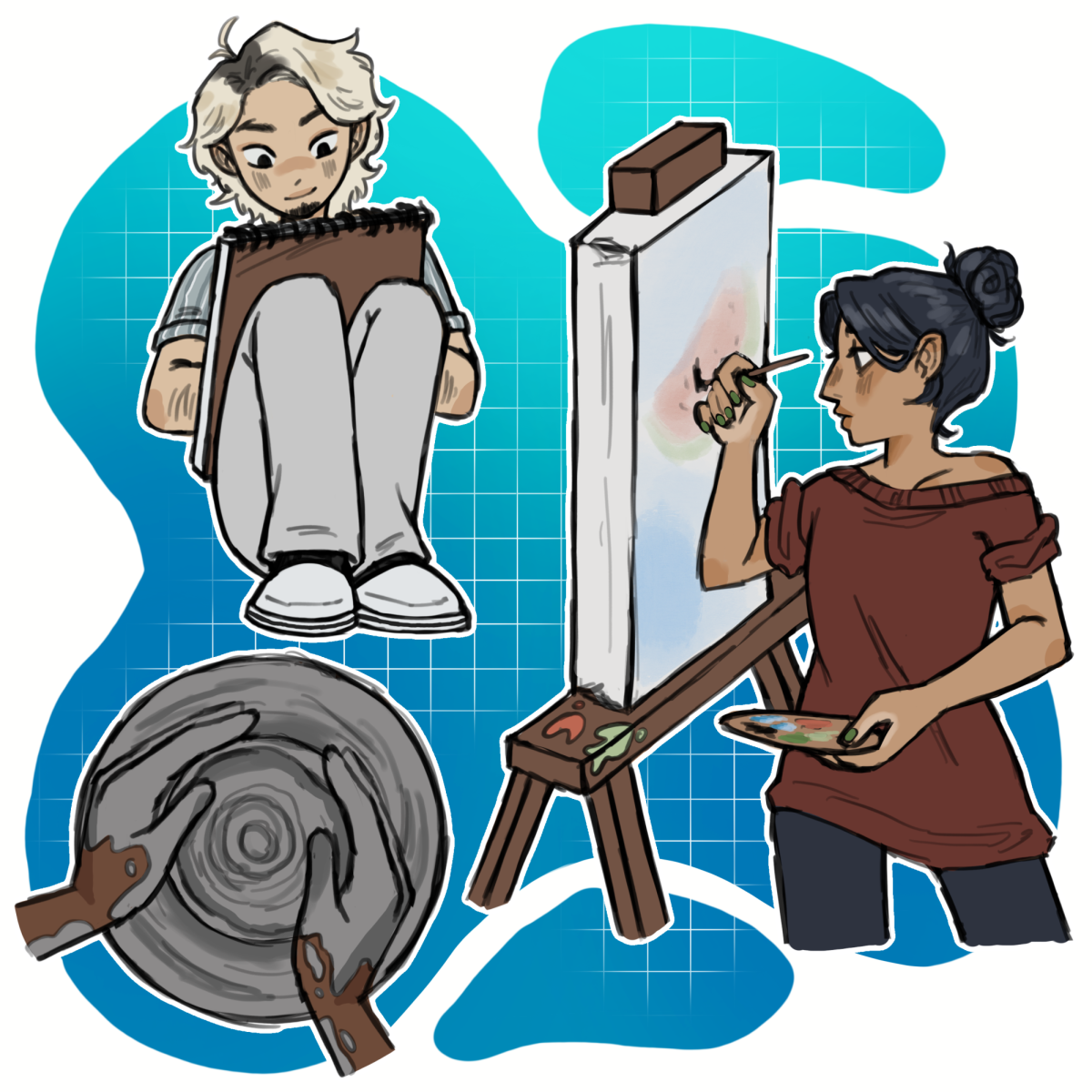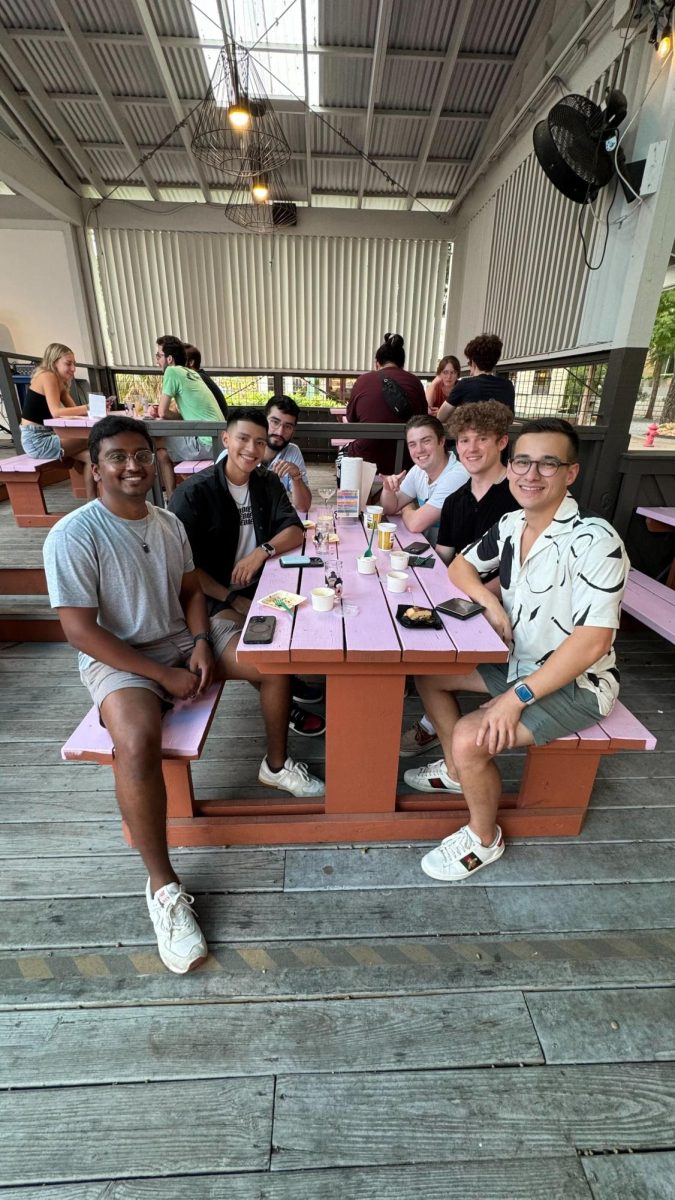In UT’s Gore Lab, a group of researchers — affectionately called “The Gore Girls” — and their experimental rats collaborate with one another to understand how endocrine disruptors affect human hormones. For Gore Girl Emily Hilz, Ph.D., this analysis doesn’t stay in the lab; it also lives in her web-app, Endoscreen.
Since joining Andrea Gore Ph.D.’s pharmacology lab as a postdoctoral research associate three years ago, Hilz gained support to create her unique web-app, Endoscreen. She and co-creator and software developer Robert Perce developed the app to hold a database of endocrine-disrupting chemicals (chemicals harmful to hormone regulation) and provide educational resources for such chemicals. With the app, users can scan their cosmetics’ ingredient lists and receive a report of the level of EDCs recognized in that product.
“When you understand (the effects), that’s when you can start really making changes,” Hilz said. “If you’re just being told something and don’t know why, you’re not going to change your behavior.”
After launching Endoscreen in November, Hilz and her team received $40,000 from Phase 1 of the Department of Health and Human Services’ Endocrine-Disrupting Chemicals Innovator Award. They applied for Phase 2 of the competition in December and are still awaiting a response about receiving more support for further app improvement.
“It’s really fun to work on, and it’s cool what Emily’s doing getting more visibility on it,” Perce said. “It’s still a work-in-progress to a certain degree, but that’s all software.”
Since Endoscreen’s launch, Hilz has gone out of her way to advertise the app and EDC education on Instagram, begin collaborations with other programs and, most recently, educate college students face-to-face at their campuses in her free time from the lab. Last week, she participated in a booth at Central Texas College’s welcome-back-fair.
“It was really rewarding for me. … I felt like the students were really engaged, interested and appreciative of the information,” Hilz said. “You never know how people are (going to) respond to some science lady cornering them, talking about toxic chemicals, but they seemed engaged, and I think that’s because there’s a lot more awareness these days.”
Additionally, users can contact Hilz to request using Endoscreen’s Application Programming Interface so anyone can integrate Endoscreen’s data into their own software, spreading more awareness about the EDC issue. Hilz recently began collaborating with women’s hormonal care program Mohana to improve their understanding of EDC hormone effects in order to provide patients with better care.
“(We’re thinking about designing) a section inside our health assessment that focuses on understanding your potential exposure to endocrine disruptors,” said Dóra Jámbor, co-founder and CEO of Mohana. “That’s where Dr. Hilz is going to come in and guide us with what questions to ask.”
Hilz said she hopes to have even more collaborative opportunities and spread awareness as her app and research develops.
“We’re definitely seeing the effects of EDCs in society, and they’re emerging over time. This is something I find a little bit overwhelming, but we have the ability to make changes in our behavior that help protect us and lower our exposure,” Hilz said. “Until we see regulatory action, you’re never going to be able to completely protect yourself, but that doesn’t mean that it’s pointless to lower your exposure.”















